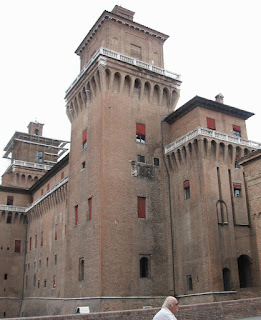Jesuit priest had a crater on the moon named after him
 |
| Giovanni Battista Riccioli pictured in an illustration from a 17th century book |
He was renowned for his experiments with pendulums and falling bodies and for his studies of the motion of the earth and the surface of the moon.
Riccioli entered the Society of Jesus when he was 16 and after completing his training began studying the humanities.
Between 1620 and 1628 he studied philosophy and theology at the Jesuit College in Parma, where he was taught by Giuseppe Biancani, who had accepted new ideas such as the existence of lunar mountains.
After Riccioli was ordained he taught physics and metaphysics at Parma and engaged in experiments with falling bodies and pendulums. He is believed to be the first scientist to measure the rate of acceleration of a freely falling body. He also carried out observations of the surface of the moon.
 |
| Riccioli's moon map, which he drew in 1651 |
He went to work at a college in Bologna where he built an observatory equipped with telescopes and instruments for astronomical observation.
One of his most significant works was his Almagestum Novum, an encyclopaedic volume packed with illustrations and tables that became a standard reference book for astronomers. He continued to publish works on astronomy and theology and to correspond with other scientists right up to his death at the age of 73 in 1671 in Bologna.
A crater on the moon has been named the Riccioli crater in honour of the astronomer.
 |
| Ferrara's impressive castle |
Ferrara in Emilia-Romagna, where Riccioli was born, was the city of the Este dukes and still has winding cobbled streets, medieval houses, Renaissance palaces and a stunning castle. It has been declared a World Heritage Site by Unesco.
Travel tip:
Bologna, where Riccioli worked until he died, is the capital of the Emilia-Romagna region and home to the oldest university in the world, which was founded in 1088. An important cultural and artistic centre, Bologna is famous the world over for its dish of tagliatelle al ragù bolognese, strips of pasta with a rich, meat sauce.
Home